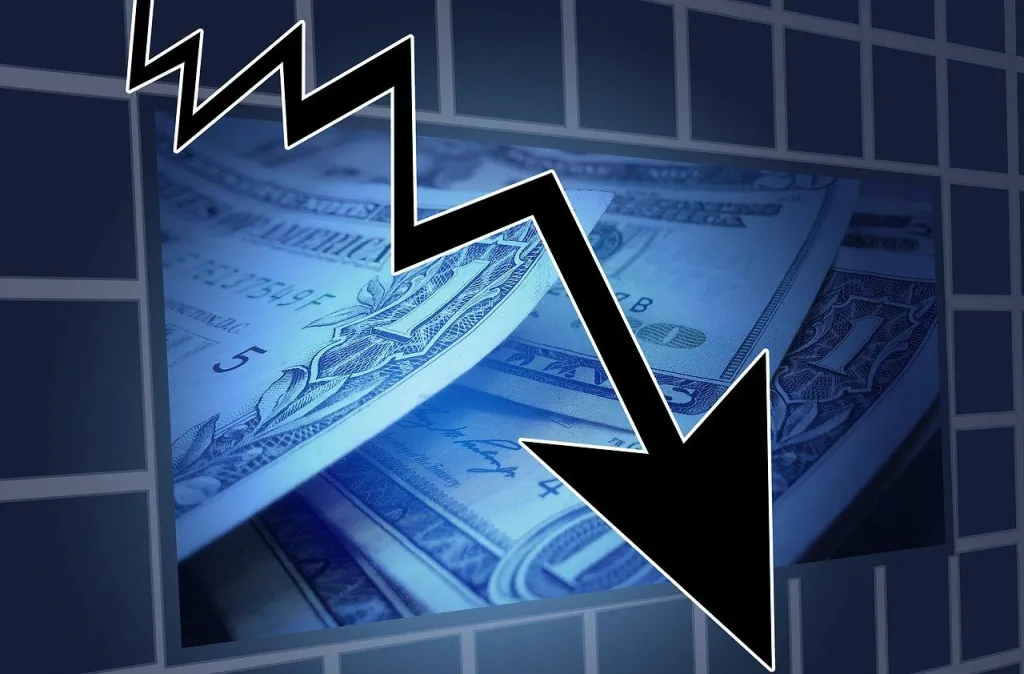The global economy has recently been going through a period of deep turbulence. Rising geopolitical tensions, inflationary pressure, energy market fluctuations, and disruptions in global supply chains are causing concern among financiers and economists. Many experts believe we are on the verge of a new global financial crisis. Are these concerns justified? In this article, Baltimore Chronicle will examine the key factors that could lead to a new collapse and try to understand how realistic such a scenario is.
Key Signs of a Future Financial Crisis
The current financial landscape shows several alarming signals that may point to the beginning of a new financial crisis.
- Sharp inflation growth in the US, EU, and other leading economies.
- Interest rate hikes by central banks to curb inflation.
- High levels of corporate and public debt.
- Declining GDP growth rates in key regions.
- Loss of investor confidence in the banking system after a series of bankruptcies in 2023–2024.
These factors form a potentially explosive mix, which, in the event of additional shocks (e.g., a military conflict or the collapse of a major company), could trigger a financial avalanche.
Historical Parallels: Lessons from Past Crises
To better understand the possible scenarios, it’s worth looking back at past global financial crises. They often had common features:
Key Characteristics of Previous Financial Crises:
- Excessive speculation in asset markets (e.g., real estate or tech).
- Underestimation of risks by banks and investment funds.
- Inadequate regulatory oversight.
- Sudden liquidity shortages.
- Panic among investors and depositors.
The table below provides a brief comparison of three major financial crises:
| Year of Crisis | Main Cause | Impact on Global Economy | Crisis Response |
|---|---|---|---|
| 1929 | Stock market speculation | Great Depression, GDP dropped by 15% | Roosevelt’s New Deal |
| 2008 | US mortgage crisis | Global recession, bank bankruptcies | Stimulus programs |
| 2020 | COVID-19 pandemic | Collapse in economic activity, unemployment | Massive fiscal interventions |
These examples show that the causes may vary, but the consequences are often similar.
Geopolitics as a Catalyst for Financial Shocks
Geopolitical tensions in recent years have significantly complicated the economic situation. Conflicts in the Middle East, the war in Ukraine, and growing US-China rivalry all create uncertainty.
How Geopolitics Affects the Economy:
- Disruption of supply chains.
- Energy instability and rising prices.
- Sanctions and trade barriers.
- Reduced investment in high-risk countries.
Such conditions not only undermine investor confidence but also slow down economic recovery after previous crises.
Is the Banking System Ready for New Challenges?
After the 2008 crisis, financial regulators around the world implemented a number of reforms. In particular, stricter capital requirements, regular stress testing, and improved financial reporting transparency were introduced.
However, the situation remains vulnerable:
- Several large US banks went bankrupt in 2023.
- Risks associated with crypto assets remain underestimated.
- Liquidity problems in European banks are causing concern among regulators.
This shows that although the system has become more resilient, risks have not been completely eliminated.
The Role of New Technologies and Digital Currencies
Technological development can be both a salvation and a source of new threats. On the one hand, central bank digital currencies (CBDCs) can enhance control over money flows. On the other hand, decentralized financial systems (DeFi) often operate outside regulatory oversight.
Pros and Cons of Financial Digitalization:
Advantages:
- Convenience and transaction speed.
- Reduced transaction costs.
- Increased financial inclusion.
Disadvantages:
- High security risks.
- Speculative nature of cryptocurrencies.
- Lack of proper regulation.
In times of financial panic, digital assets could become either a safe haven or an additional source of instability.
Expert Forecasts: Crisis or Slowed Growth?
Experts’ opinions on the prospects of the global financial system are divided. Some believe in a “soft landing” scenario — gradual inflation reduction without a major recession. Others forecast a recession in the US and EU within the next 12 months.
IMF analysts warn of high risks in developing countries due to debt burdens and weak economic foundations. At the same time, financial markets continue to show volatility, indicating a lack of strong confidence in the situation’s stability.
How to Prepare for a Possible Financial Crisis
In the event of a real threat of a new financial crisis, it’s important to take precautionary steps in advance. This applies to both government institutions and individuals.
Recommendations for Individuals:
- Diversify your savings.
- Reduce debt burden.
- Stay informed with news and expert analysis.
- Avoid high-risk investments.
- Maintain an emergency fund for 3–6 months of expenses.
These simple but effective actions can significantly improve your financial security during difficult times.
Earlier we wrote how to save effectively during inflation.

